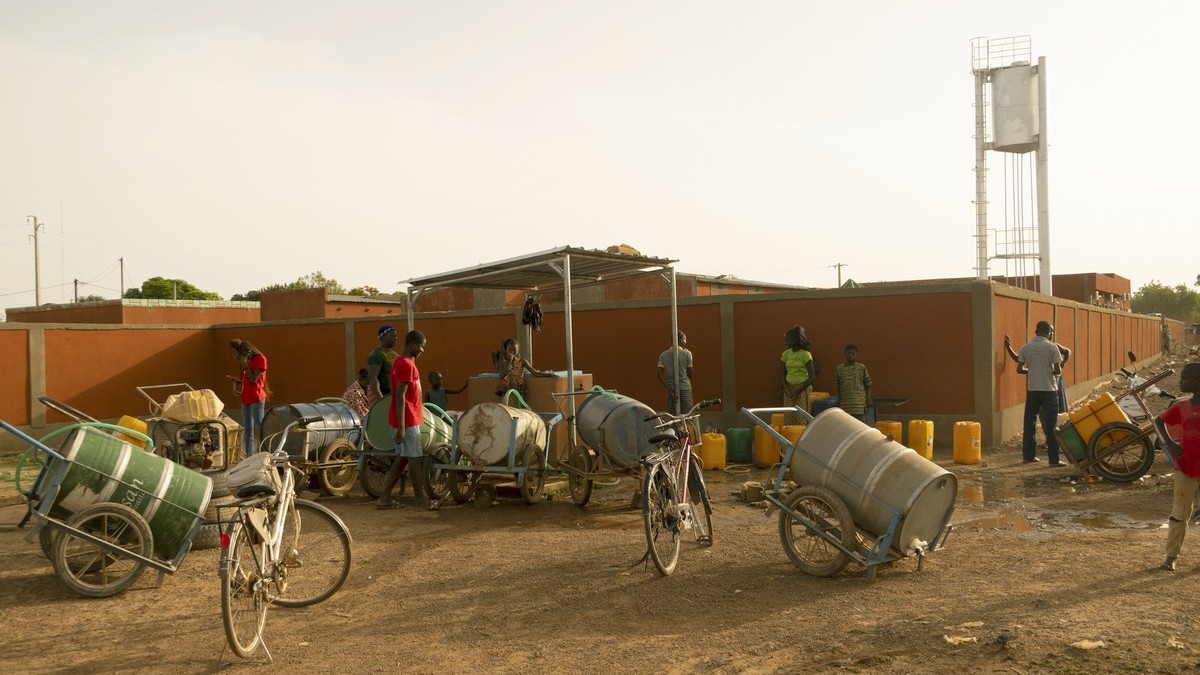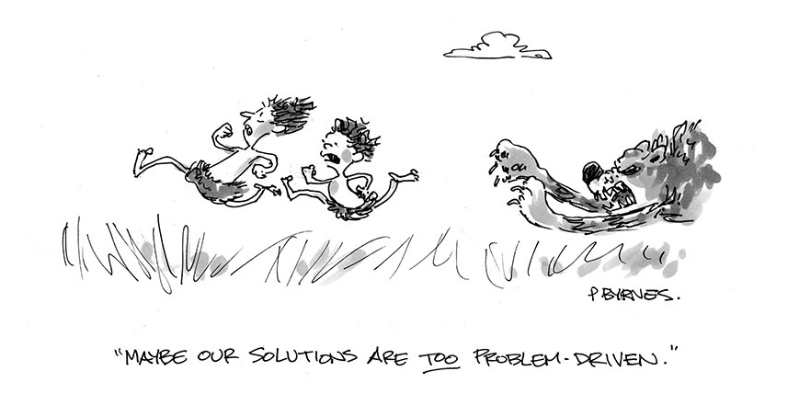The ICRC has been innovating for 160 years, continuously adapting to changing times, situations and challenges.
The Innovation Team itself, though, is a relative newcomer.
Set up in 2018 to foster a culture of innovation and support bottom-up and top-down initiatives, it has just undergone its first-ever independent evaluation.
The exercise, which took place over several months, involved more than 60 interviews, a survey, four team discussions, and nine in-depth case studies. It was carried out by London-based consultancy The Research People.
The aim was to gather the perspectives of people across the ICRC on the Innovation Team’s approach, impact and future direction.
Lessons learnt
So what are some of the main findings and recommendations?
And what lessons can be drawn from a five-year period that saw the team invest CHF 8.2 million in 128 initiatives ranging from AI-enabled approaches to tackling the twin impacts of conflict and climate change.
A further CHF 0.5 million went into supporting the Strategic Foresight Initiative, which aims to build foresight capabilities and foster future thinking across the ICRC.
Evaluation of Innovation at the ICRC 2018-2023 | Key Findings Report
The evaluation assessed progress towards achieving the Innovation Team’s six overarching goals:
- Build connections between innovators
- Support innovation
- Provide a “safe space” for testing
- Promote a culture of collective innovation
- Support the ICRC to prepare for the future
- Invest intentionally
How are we doing?
While the findings show good progress has been made on the first three objectives, only “some progress” has been realized on the other three.
For example, when it comes to building connections between innovators, this process is very much “on track”.
“The [team] created links across the organization, developed multi-disciplinary teams and brought colleagues together to develop and implement solutions,” says the report.
In terms of promoting a culture of collective innovation, however, the results are more uneven:
“The [team] adopted a relational approach and focused on connecting with innovators, which was a major strength but was less effective outside of headquarters. Efforts to raise awareness of innovation were limited by communication channels and the capacity of the team.”
Overall, the Innovation Team connected with, funded and supported more than 100 innovation teams across the ICRC as well as delivering training to more than 1,700 people.
The evaluation highlights the success of the more recently introduced Strategic Foresight Forum in bringing together a diverse, cross-section of staff for in-depth training in foresight methodology and tools. There were more than 1,100 applicants for the forum’s two cohorts in 2022 and 2023.
However, the findings reveal that while the team has been effective in developing foresight capabilities, there is still some way to go in embedding foresight within organizational practices.
In fact the difficulties faced by innovators when it comes to replicating, embedding or scaling solutions are a common thread throughout the evaluation.
Jumping hurdles
The report says there are “multiple barriers” to implementing funded initiatives: some are innovation-specific, while others are ICRC-specific, such as territorialism and mistrust.
Innovations therefore require “a constellation of factors” for them to be successfully adopted into departments or delegations.
These include:
- Securing senior management support
- Establishing clear responsibility for replication efforts
- Ensuring funding availability for the next phase
- Thinking about scaling from the first prototypes.
“Particularly in delegations, but also at headquarters, people are innovating every day. They are coming up with solutions, they have tons of creative ideas, and they see problems that need addressing,” said Nan Buzard, head of the Innovation Team.
“It’s not that there’s a lack of innovation and creativity in the organization, there’s a lack of information management and coherence, which contributes to the inability to embed or scale.”
Time also plays a big part, says the report: “It can take years to decades for innovations to be developed, tested, and adopted at scale. Many of the solutions that were funded by the [Innovation Team] are still at a fairly early stage and will need more funding, time, and support to reach their potential.”

Seeking solutions: Solar-powered pumping system built by the ICRC, eastern Burkina Faso. @ICRC/Nathalie Perroud
The evaluation notes that investments were biased towards initiatives at headquarters (45% of funded initiatives were based at HQ); digital technology initiatives (54% of funding went to digital innovations); and male innovators (70% of initiatives were led by men).
And it calls for greater diversity within the Innovation Team itself, saying it lacked representation from the Global South and other diversity markers, for example disability – and that this had a “significant impact” on the team’s focus areas.
Looking ahead
In terms of budget, the team is funded by a single private donor, giving it autonomy and flexibility in terms of strategic objectives and funding.
The evaluation found that this enabled the team to adopt a “remarkably organic” approach in comparison to other humanitarian innovation initiatives.
“While most other initiatives have a formal call for proposals, with detailed applications, external reviewers, and funding panels, the [Innovation Team] instead held discussions on priorities with potential partners and then collaboratively developed their proposals,” says the report.
“This made the team remarkably responsive and meant that little time was wasted in developing proposals for initiatives that would never receive funding.”
The evaluation says greater clarity is now needed to decide future objectives and which areas of innovation should be prioritized.
Responding to the report and the findings, Jo Kaybryn, head of the ICRC’s Evaluation Office, said it was important in terms of accountability that an independent evaluation had been carried out and made public.
She said the exercise offered important learnings for the Innovation Team, the ICRC and other humanitarian organizations working in the innovation space.
Buzard, who is stepping down at the end of the year, echoed these sentiments, adding: “This evaluation helps us to take a breath and take stock as to what we want to accomplish in the next five years. We have some new efficiencies and early impact, and that must continue to grow. Let’s not forget that almost everyone who participated recognized innovation as an important capability for the ICRC to be better.”

